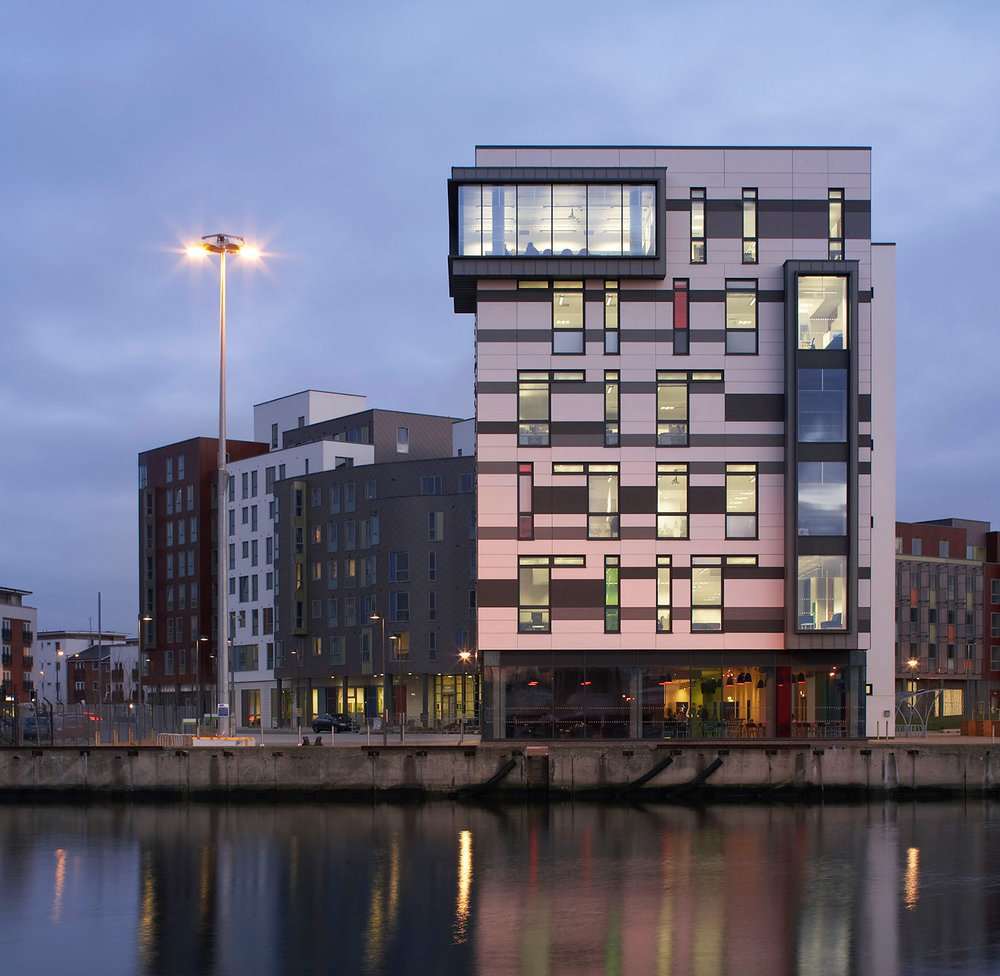UoS shortlisted for international biotech prize
University of Suffolk Biotechnology research unit have been shortlisted for a prestigious prize. This is the Cultivating Excellence award, by RegMedNet. This is significant as this is an international award decided by a panel of judges to celebrate excellence in regenerative medicine research internationally. University of Suffolk were nominated as finalists because of their excellent teaching and research platform in regenerative medicine research.

The James Hehir Building, UoS, Image source: MCW Architects website
Glyconics to produce worlds first infrared COPD medical device

Glyconics is a Cambridge-based start-up company that specialises in point-of-care testing to improve efficiency in health care. Glyconics is an innovative leader in the field, that uses infrared spectroscopy to analyse samples for markers of disease for a wide range of conditions. Glyconics will be the world’s first to produce hand-held infrared devices for chronic obstructive pulmonary disease (COPD) patients. The device will produce early warnings of acute events to reduce and prevent the number of hospital visits by COPD patients, and potentially improve quality of life. This is in conjunction with Spectrolytic, who develop leading infrared spectrometers.
CRISPR/Cas9 (now referred to as CRISPR) , is a new technology use for highly-targeted genome editing using an enzyme (Cas9) called an endonuclease, which was originally found in a species of bacteria. The European High court has ruled that crops edited with new gene-editing tool CRISPR should be treated the same as a traditionally genetically modified organism, ruled on 25th July. This could cause problems for regional companies growing CRISPR-edited crops in the region, as they would be subject to stricter growing and harvesting conditions.
NEW TOUGHER GM RULES FOR EU

Ablatus Therapeutics in top ten innovations for the NHS

Ablatus Therapeutics, a medical device company, was initially developed by Norfolk and Norwich University hospital clinicians to improve radiofrequency ablation. Ablatus recently received £1 million investment from NVM private equity to continue commercialisation of their patented bimodal electric tissue ablation technology. Ablatus are now Cambridge-based and are moving towards gaining CE-mark status with this latest investment and can revolutionise cancer treatment for the masses.

